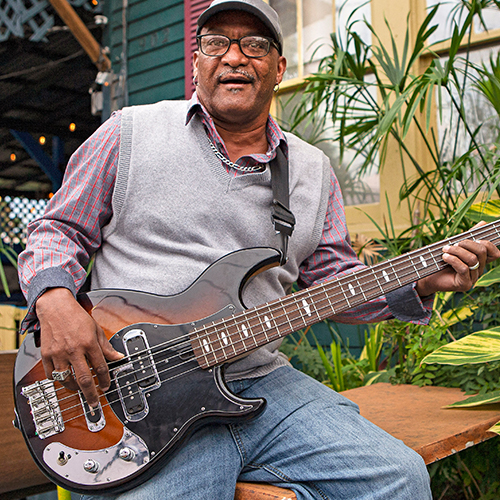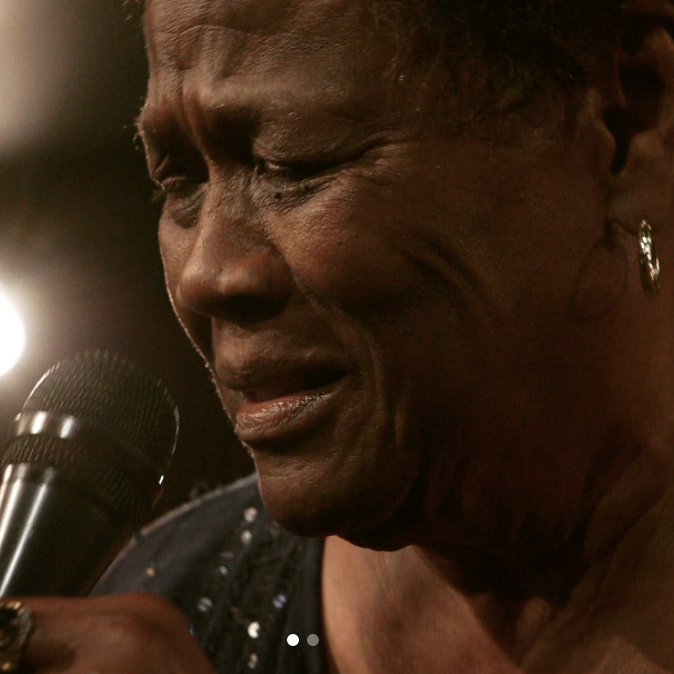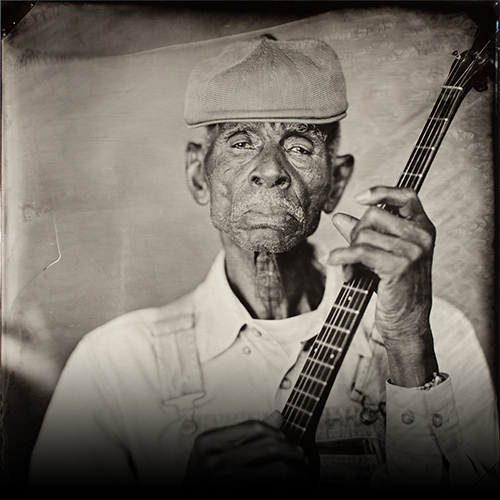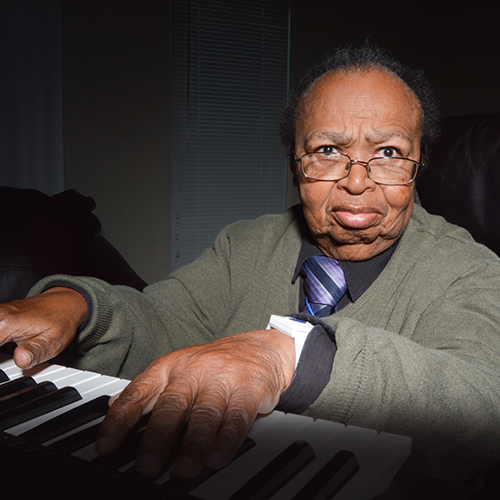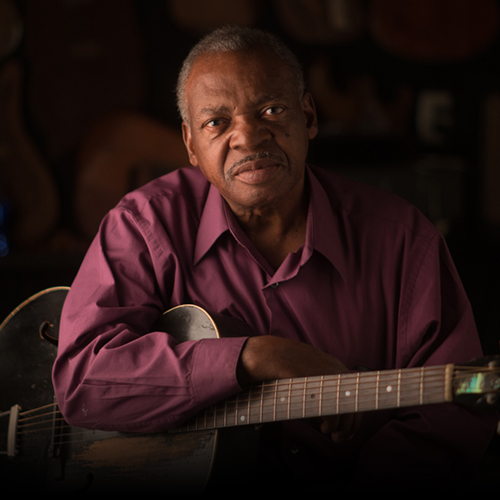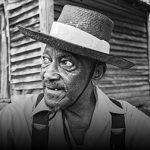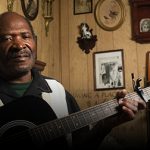Biography
The Okies and the Arkies used to do it. Now the Mexicans do it. In August they follow the pears and then the apples north from the eastern desert of Oregon and Washington into British Columbia. Some start in May with cherries in California and follow them north then east to Montana before running back for pears. After apples you can settle in an orchard and prune the trees for the winter or go do citrus in California.
How We Helped:
Music Maker connected with Dave McGrew in 1998. Dave built the Music Maker studio and Music Maker offices, and Music Maker has helped him issue his first recording, Fruit Tramp Ballads of the Great Northwest, and arrange a performance at the Shakori Hills GrassRoots Festival. He is featured in the book Music Makers: Portraits and Songs from the Roots of America (2004).
For a moment in the 1970s and 1980s, among the Okie and Arkie old-timers, the Mexicans coming in, the fruit tramps were hippies you didn’t see on television. During the revolution the cameras focused on the sons and daughters of the professionals and managers, at Columbia and Yale. After the revolution they interviewed the bombers who became lawyers, the strike leaders who joined Wall Street.
Still out in the orchards were the white kids who had fewer chances to join the mainstream and had taken a different road in any case. They gloried in the life of the tramp, the undisciplined worker our economy relies on for the dirty stuff, who does a day’s work for a day’s pay and takes no shit. For Mexicans now, it’s a way to work the difference between the First World and the Third, to support a family and buy a ranch down south. For the Okies and Arkies it was a way to eat when the dust bowl and the bank ate their homes. For the hippies it was a way to be human, to run with their lights on when all the world was blacked out.
Those were Kenneth Rexroth’s words when the Cold War was just starting. It’s long over now and you would have to take a course from me to feel your way back into what it was like when we thought it would never end. That war was great for black people as such, they got to vote and become Secretary of State. It had its advantages for Latinos, the ones who could get up here and work the difference between the inside of the empire and the killing fields down south. It was a disaster for poor people generally, who had to fight the war and come back to a civilian life where most benefits go to the military. It was very damn tough on the sensitive among the privileged, or those who could become privileged, who didn’t necessarily want to run that particular world.
I first met Dave McGrew in 1979 when I ran out from Yale to find my older brother in the orchards. Paul is a few years older than me. McGrew is just about my age. They were partners, and friends with the other fruit tramp balladeers. Paul insists that there weren’t as many as five. He and McGrew are the two I know about who are alive. It’s a tiny group with a broad vision. They made their music already knowing about John and Alan Lomax’s collections of the songs of old-time working America, knowing about Woody Guthrie’s advocacy for the Okies and the trade unions of the 1930s. Duffy and McGrew are like Guthrie, hardworking exiles from the striving class, laboring sons of working guys who had become two-fisted businessmen and left their families in tatters. They are complicated.
McGrew’s lyrics speak of fragmentation and isolation. The self is in pieces and the part with a mouth is lonely. To read the song sheets is sad. To listen to the songs, though, is to hear the McGrew I first met in the sunshine when I was a teenager, who moved through the orchards faster than anyone, an active, problem-solving, reliable friend. He stands in the circle of his acquaintance and entertains, in unity and connection. I have seen him do it in firelight by the ditches in the orchards. He wrote in the Northwest from roots in the Southern musical tradition and then came to roost in North Carolina. Now when the fruit tramps have dispersed, I have sat with him at the Music Maker studio in Hillsborough and listened with him to his recordings, the golden harvest of life.
– Dan Duffy
